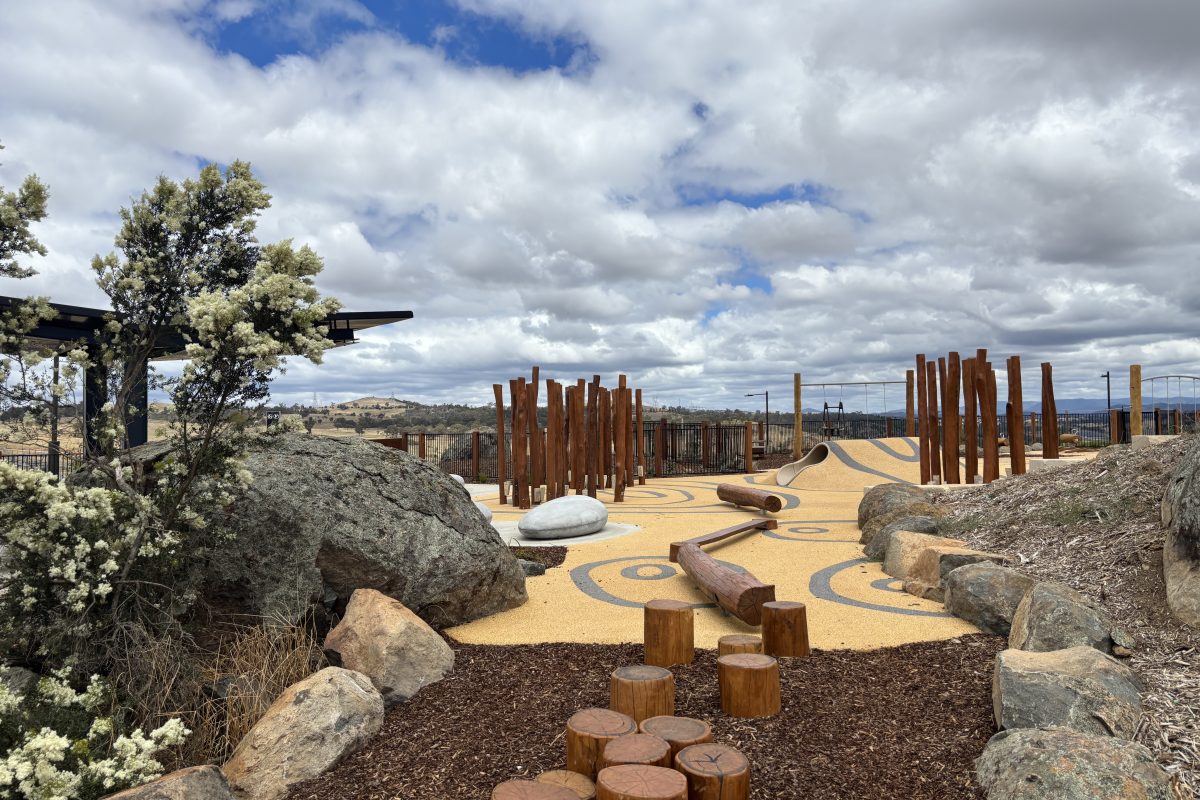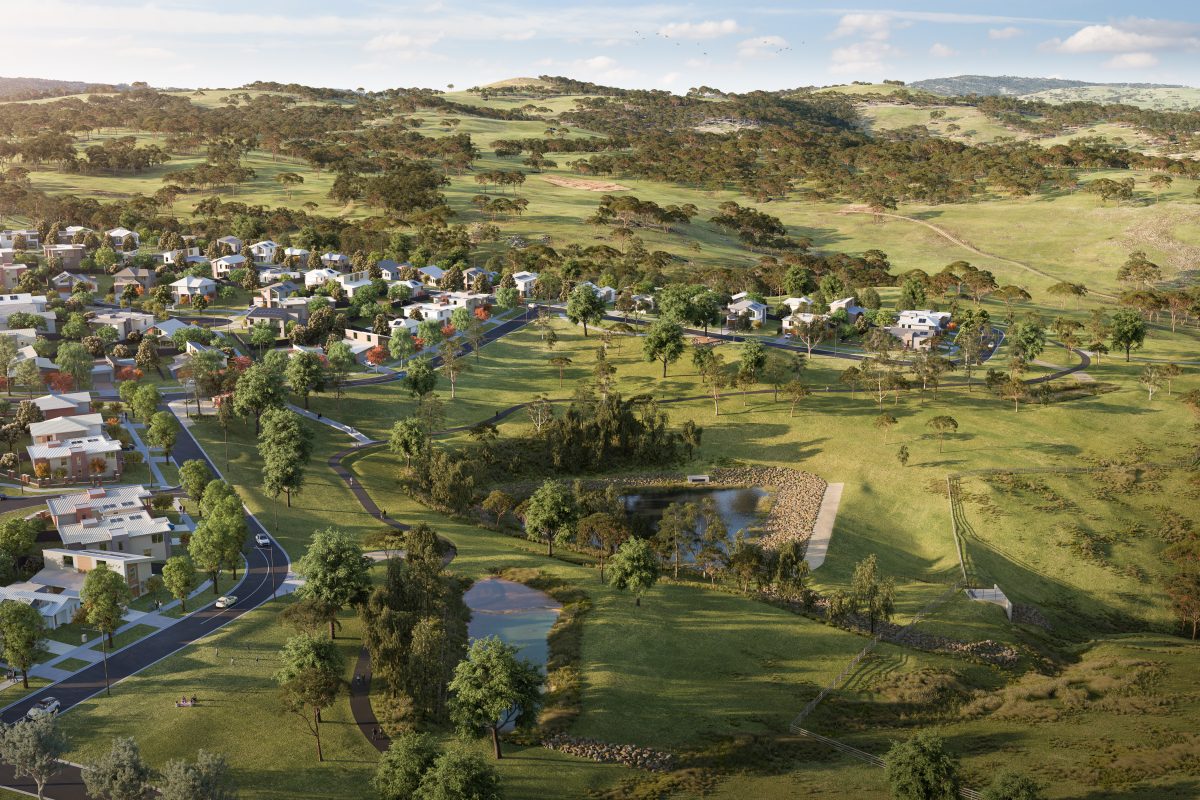Meet three sustainable influencers leading the way on reducing waste
In an effort to reduce waste, Canberra influencers are making sustainability the new black. In this series, we meet three of them.
Serina Bird
In a world of fast food and fashion, where the average Australian produces over half a ton of trash that goes to landfill each year, one area people are looking to reduce waste is in the closet.
Serina Bird, author of the book The Joyful Frugalista, is also behind the Instagram page The Joyful Fashionista, where she has encouraged sustainable fashion by creating an online community for people to buy and sell their pre-loved clothing.
Serina started the account after hosting a clothes swap party and realising most of her friends “had a lot of clothes that either no longer fit or that they no longer loved.”
“I realised there weren’t many portals at that time that catered to a body-image-positive, slightly older demographic,” she says.
“I’m just under five foot tall and have never been thin, and that has never stopped me loving fashion and enjoying dressing up. Basically, I couldn’t find any of the brands that were in my living room on these online platforms, so I decided to do something about it.”
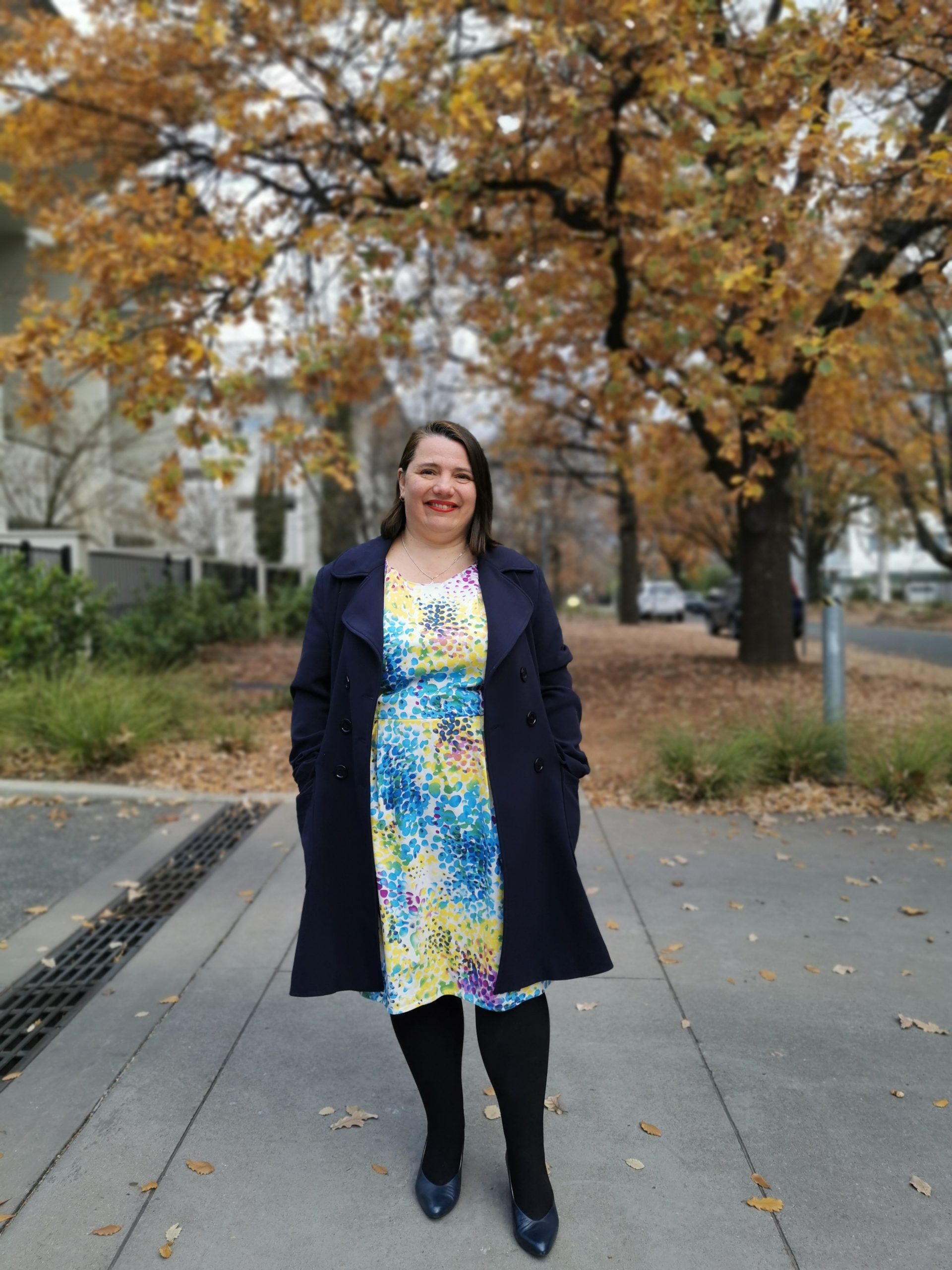
Serina, who also hosts a podcast, The Joyful Frugalista and launched The Joyful Business Club, believes being a sustainable influencer has helped spread the message that second-hand “can be cool.”
“Sustainable influencers help spread the message that second-hand no longer has the ‘second hand Rose’ stigma it once did. They are doing amazing work showing that you can look great and have a well-put-together look – all on a budget,” she says.
“I buy what brings me joy and what fits me and looks good on me. It’s not about having the latest brand of slavishly following what is happening on the runways in Europe. When shopping second hand, you can notice what people are wearing, and try to find (and replicate) the look fairly cheaply and easily.
“Sustainable influencers are helping make it super cool to be proud of making second-hand choices.”
Dimity May
Dimity May started her business Reid Tiny Farm during the first wave of Covid in 2020, selling organic seedlings grown at their property in Reid via their website and Instagram page.
At the time, Dimity was on maternity leave from her job in communications and marketing, and the seedlings were a way for her to practise her passion.
“I’d been studying regenerative agriculture in organic market gardening, so the seedlings became a way for me to hone my skills and learn to grow consistently successful plants organically, with zero waste and no toxic chemicals,” she says.
The business became so successful that Dimity was able to leave her marketing job and pursue her passion full time.
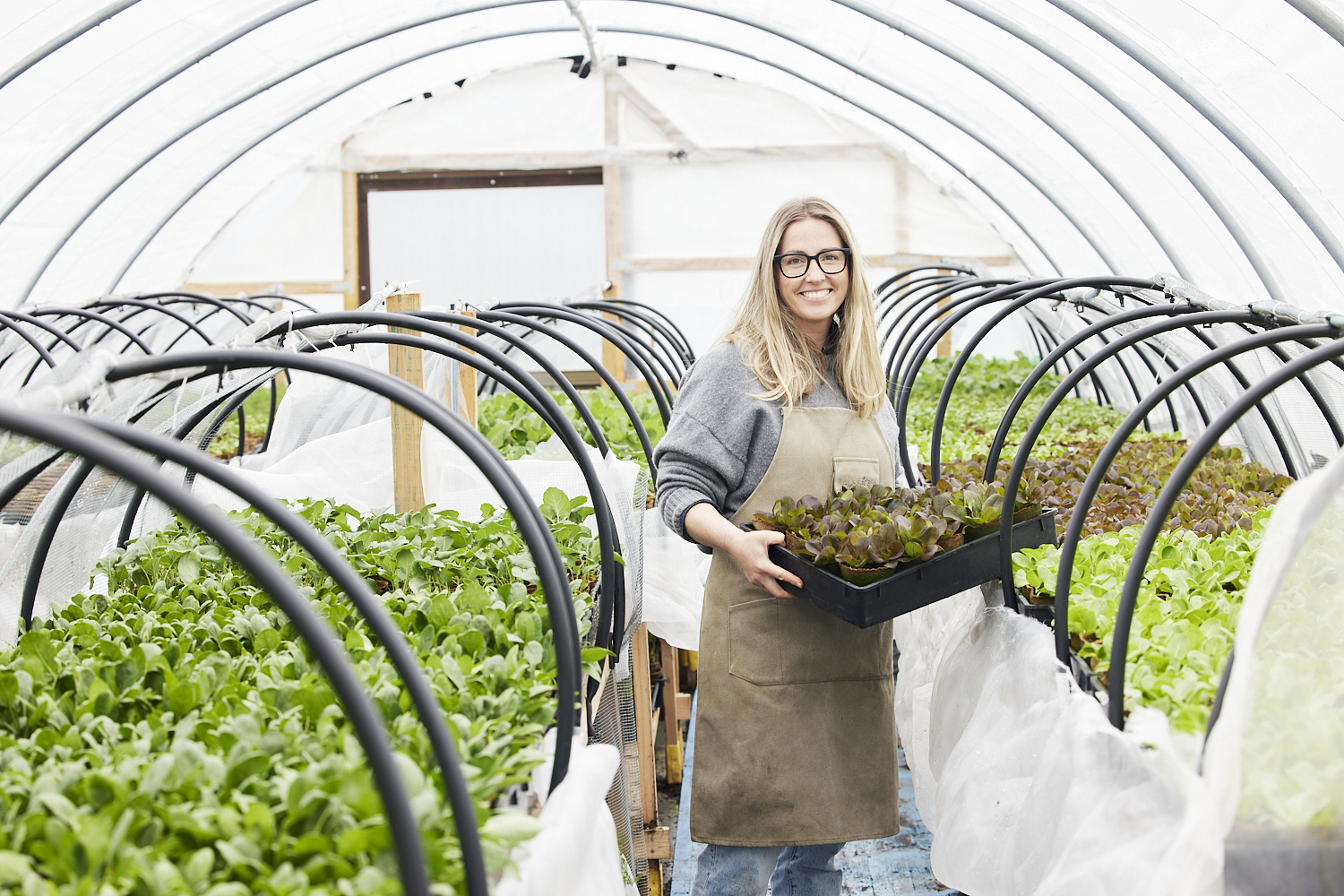
“I discovered there is a big culture of people in Canberra who want to grow their own food and are nature and health-focused,” she says.
“People will go out of their way to purchase something that will be nutritious and grown in a responsible way. There’s also the issue of the cost of groceries. I have university students growing their own seedlings in their dorm windows.
“People are seeking an alternative to our current food system, and they are looking to reduce waste more than ever.”
Dimity offers this advice for first-time growers who are keen to turn their own little patch of suburbia.
- Pick one thing to start with, something that you love to eat and are buying every week. Maybe herbs, or leafy greens, lettuce or baby spinach or whatever, and just grow that.
- Focus on eliminating one thing from your weekly shop, that one bit less packaging. It will make a huge difference over a year.
- Get some good quality compost to add to your soil. I use local Landtasia organic compost.
- Once you’ve got your plants in, protect them from pests using netting if needed and keep a close eye on them.
- Once you’ve got that first thing growing regularly and well, choose the next bit of veg on your grocery list, and keep going! It’s addictive and rewarding, so good for you and the planet.”
You can check out what’s growing at Reid Tiny Farm here.
Camille Burgh
Scroll through Instagram and it’s likely you’ll be bombarded with a consistent message: “new is better.” Whether it’s clothes, makeup, food or furniture, we’re constantly barraged with people trying to convince us to throw out the old and buy the latest “must have” item instead.
Yet a small group of Canberra influencers are proving to be a much-needed antidote to this, pitching sustainability and a slower, more considered approach to buying in a world of fast food and fashion, where the average Australian produces over half a ton of trash that goes to landfill each year.
For Camille de Burgh, the journey to becoming a sustainable influencer all started with her bin.
In March 2021, she launched a public journey on her Instagram account Low Waste Lifestyle to reduce the amount of rubbish that ended up in her big green bin each week. She was so successful in the challenge that she didn’t fill her garbage bin for a whopping 40 weeks.
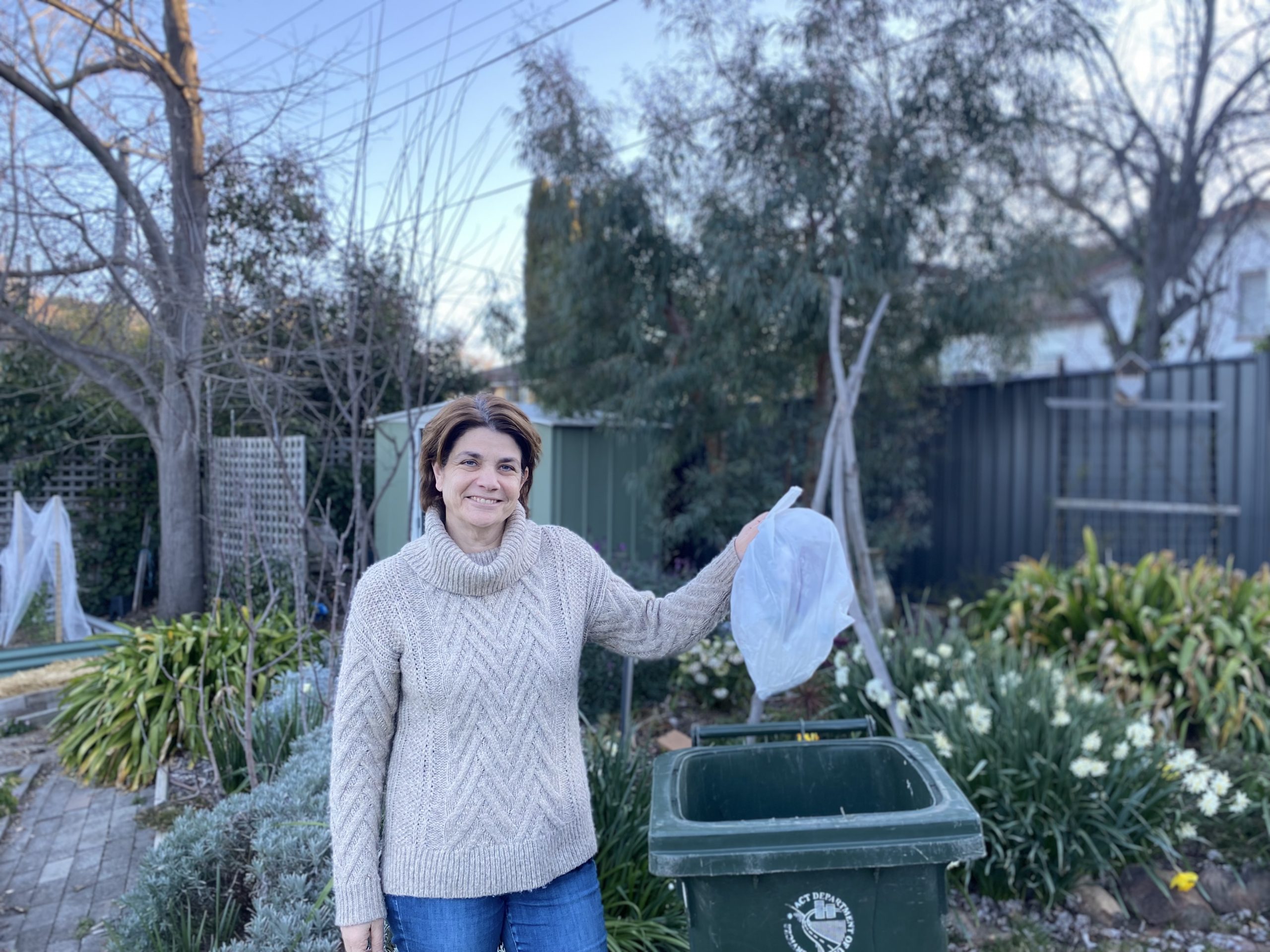
Each week she began posting about her enviably small garbage haul with helpful tips and tricks, and it didn’t take long to gain a firm following.
A year on, she has over 20,000 followers, with many of her bin reels going viral, reaching over one million views on Instagram.
Camille says she couldn’t have imagined reaching so many people in her “wildest dreams.”
“I certainly didn’t think I would be instafamous for my bin, but now I’m a proud Binfluencer,” she says.
“It’s so gratifying to have people reach out and say that they have made changes based on my advice and to hear how happy they are with what they have achieved.”
Camille believes one of the reasons her account has become so popular is because it highlights simple and easy ways to reduce waste without too much effort or adding too much of a burden to people’s already busy lives.
“For example, always remember your shopping bags so you don’t have to take a plastic bag. Recycle your batteries at the supermarket. Remember your keep cup and reusable water bottle. And of course my favourite – compost! FOGO is coming to all of Canberra soon so that will help.”
Camille says the interest in reducing waste vastly increased last year when Canberra was plunged into lockdown and concerns about climate change became louder than ever.
“I think Covid probably had a bit to do with getting serious about sharing how to reduce waste – it felt like it was a positive thing to do when things were feeling a bit grim,” she says.
For those just starting out on their sustainable journey and feeling overwhelmed, Camille’s advice is to start small.
“Pick one thing to change and incorporate that into your lifestyle and then try the next thing,” she says.
“I deliberately called my page low waste – because for most of us zero waste is an unattainable goal, and I didn’t want people to give up before they started! My philosophy is better to have lots of people making small gradual changes than a few people being zero waste.
“After all, that’s why I keep on doing this – to make a difference, however small.”
